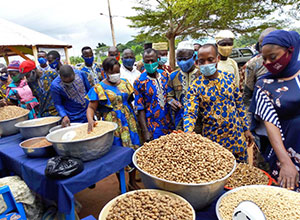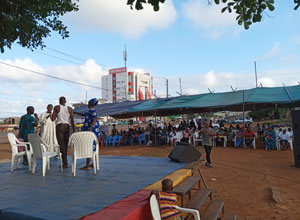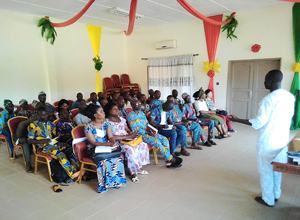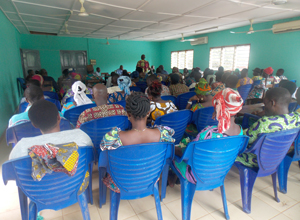1 May. 2005 Benin
Give women jobs and education. Traditional “Gari”, a food popular enough to make people line up for.

Cassava is graded and dried on heated pan
Cassava processing by women's cooperative
In December 2004, HFW launched food-processing and literacy education projects as a way to increase incomes for the residents of Gbeto-Fongbo and Agondotan in the commune of Ze, Atlantique region.
"Gari", a food popular enough to make people line up for
30 female members of Miwade cooperatives, a woman's group in the region, and their daughters join the food processing project, in which they make "gari", pasted and dried cassava, which is a kind of yam.
Those participants are trained by women from neighboring villages to produce quality gari, and now people make a long line waiting to buy it in front of the processing factory. These workers are enjoying gari production even though they say, "We are too busy to have a rest."
There is an issue facing them, such as a sharp increase in the original cost of cassava. Having much confidence in the work, however, the workers are aiming to improve the food quality and its market value by taking trainings for food hygiene and attaching labels to the processed food.
Literacy project
In the literacy project, 61 of the residents, including those members of the cassava-processing project, applied and are now participating. They are divided into three classes, taking lectures twice a week that cover not only reading, writing, and calculation but also sanitation, human rights, as well as children's rights.
At the beginning of the program, the trainees did not have even textbooks. Now they are supplied with them, and to increase teaching staff is being considered.

A class room scene




